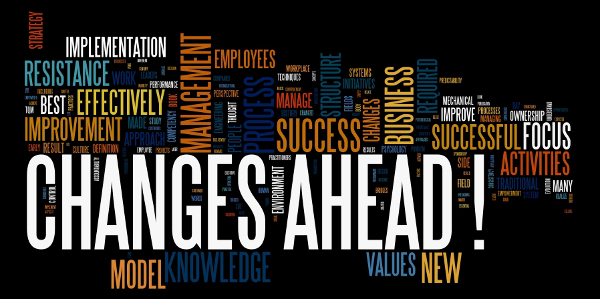"Blog 8: Organizational Change and Learning"
A proactive approach to organisational development is organisational learning. Sustained involvement in organisational change is critical in tumultuous and unpredictable times. Most organisations, despite their best efforts, face resistance to change and hence fail to achieve organisational change. Cognitive and psychological factors, social and power dynamics, and structural and procedural inertia are all linked to resistance to change. Organizational learning theories can be used to develop strategic interventions for dealing with resistance and achieving organisational change objectives. A learning organisation can employ a variety of learning methods to improve its response to environmental changes.
Firms that improve and update their learning skills get a competitive advantage by being innovative and, more importantly, increasing their top and bottom line efficiency. Organizational learning is a continuous process that, as a result of collaborative efforts, leads to long-term changes in a variety of domains. Two of the most important factors for boosting organisational learning are teamwork and mutuality. Organizational learning is aided by a contingency planning strategy, often known as incremental planning. Contingency planning enhances a company's ability to experiment with alternative techniques to efficiently deal with a wide range of issues. The development of desirable competencies is another need of organisational learning. As a result, temporary and diverse structures, such as task forces or groups, are developed with the goal of obtaining objectives.
A company's or business's efforts to change a substantial component of its operations or other internal procedures are referred to as organisational transformation. Organizational change management is the process of harnessing change to achieve a successful outcome, and it usually consists of three stages: planning, execution, and follow-up. A multitude of circumstances necessitate organisational change. New management at the top of the firm or within its parts is one of the most prevalent difficulties managers encounter. Transformations in organisational team structure, the deployment of new technologies, and the acceptance of new business models are all examples of organisational changes.
Adaptive and transformative changes are on different ends of the spectrum when it comes to organisational change. Businesses adapt their operations to changing needs by making incremental, gradual modifications. In order to carry out business plans, managers polish and accept these modest tweaks and alterations. Leadership can add, remove, or change procedures at any time along the process.
In terms of scale and scope, transformational changes are substantially larger than adaptive adjustments. They frequently necessitate adjustments in goal and strategy, company or team composition, people and organisational performance, or business processes all at the same time. Because of their magnitude, these changes may take a long time and effort to implement.
Company changes can be challenging and costly in terms of both time and resources if adequate organisational change management is not done. Employees' self-esteem may suffer as a result, and as a result, the production of competent abilities may suffer as well. Indeed, a lack of management adjustments may result in the organization's downfall. To prepare for an organisational change, first define the change, understand why it is necessary, and enlist the help of coworkers. They should next develop a plan outlining how the organisation, its employees, customers, and stakeholders will be affected, as well as how success will be measured.The process plan should next be checked to see if it matches with the organization's goals and specifies out the procedures for implementing and maintaining the change. Finally, it's critical to jot down any potential roadblocks and be willing to address them as needed. It's also important to remember to celebrate small victories along the way.
As a result, it's critical to be familiar with organisational learning know-hows so that you can anticipate and solve the issues that come with change, and guarantee that you have the abilities and knowledge to manage it. Thank you for taking the time to read this:)


Comments
Post a Comment